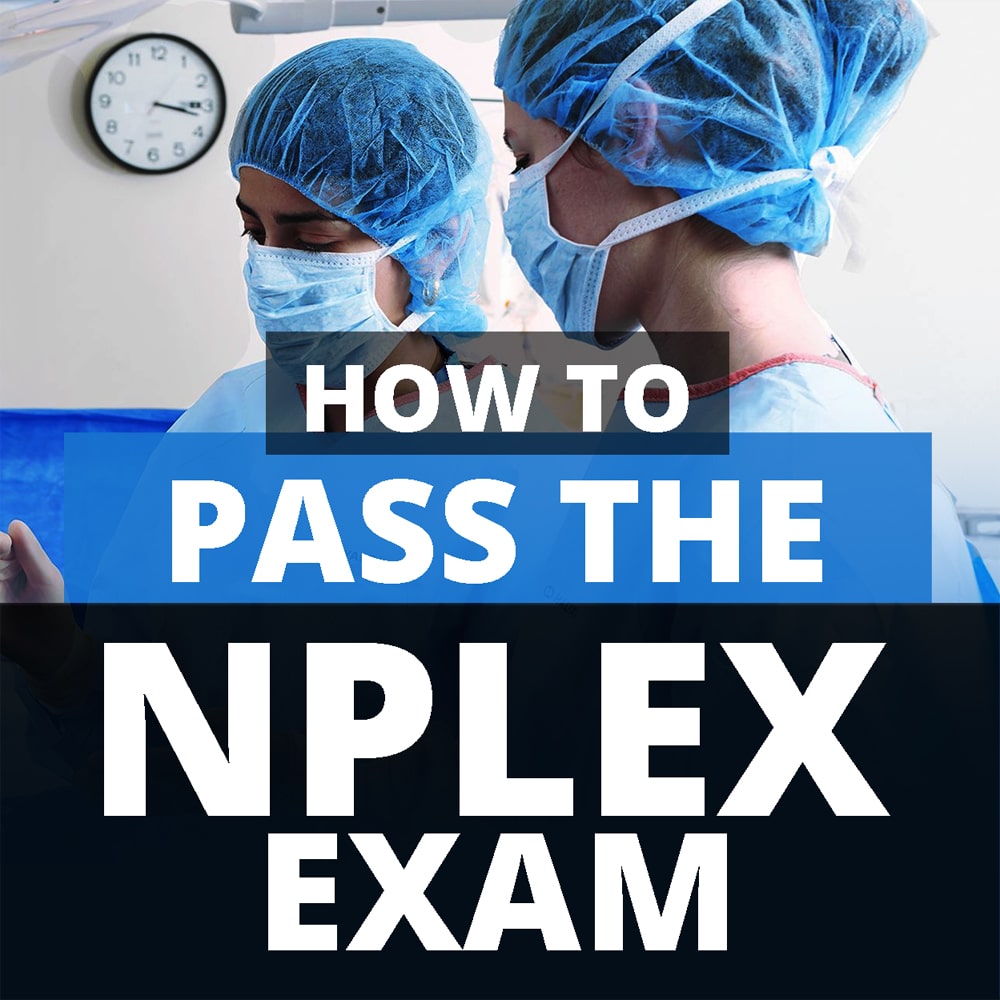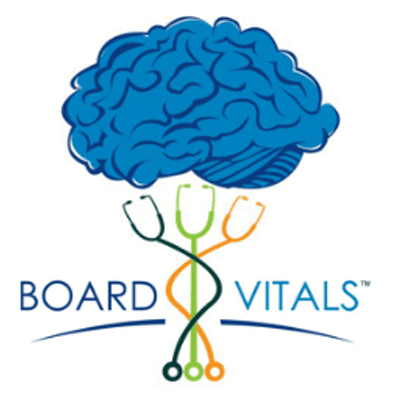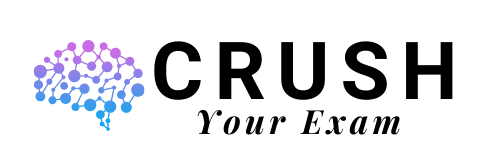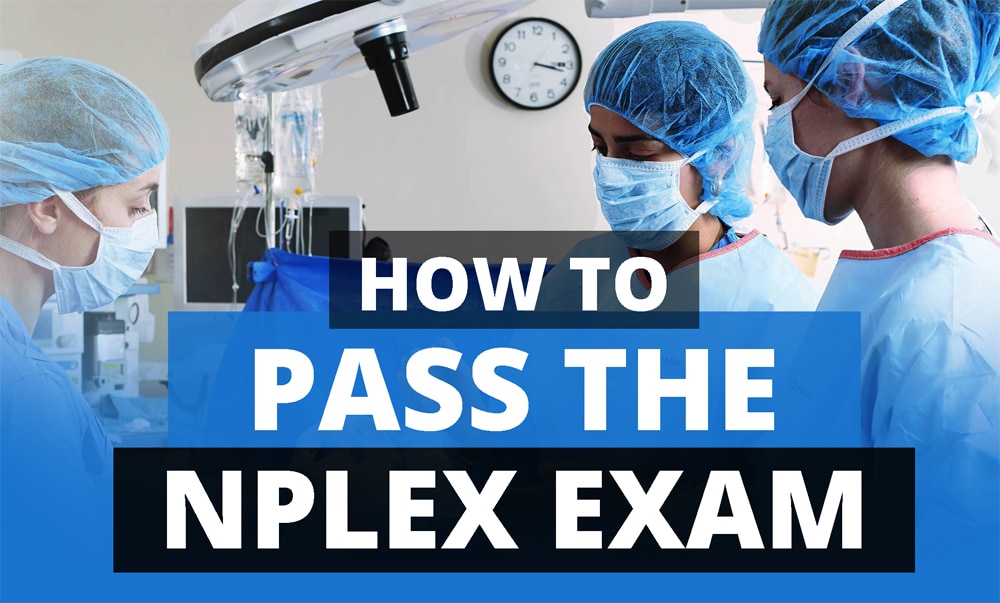
How To Pass The NPLEX Exam
The most important thing to note about the NPLEX Examinations is that they’re case-based. This means that these exams primarily contain questions derived from clinical scenarios from hypothetical patients. On Part I, the Biomedical Science Examination, the clinical synopses are fairly short. But on Part II, Clinical Science Examinations, the scenarios and case studies are much broader. In either case, however, the structure of these tests means that you’ll need to pursue a non-traditional study method if you want to achieve a passing score.
The first step in passing the NPLEX is finding the best study materials. To pass the NPLEX on your first time we recommend Board Vitals.
Targeted specifically to the Part 1 – Biomedical Science Examination (BSE) exam, this NPLEX question bank addresses the format and topics specifically found on the exam, including anatomy, physiology, biochemistry & genetics, microbiology & immunology, and pathology. The NPLEX Part 1 question bank follows the exam specifications outlined in the Naturopathic Physicians Licensing Examination (NPLEX) Part I – Biomedical Sciences Examinations: Blueprint and Study Guide.
Board Vitals NPLEX Review Course Overview
The Bottom Line: BoardVitals Podiatry does a fantastic job emulating the real test experience through their timed practice tests. They also offer highly detailed practice questions backed by adaptive learning technology at a very affordable price point.

Save 10% on Board Vitals Prep Course
If you can afford it, this is one of the best ways to prepare you for taking all parts of the NPLEX licensing exam. There are a few options available for you to choose from that can help you to achieve many of the study tips listed here. For example, a course like BoardVitals provides a set schedule for students to follow that will keep them on course over several weeks. They also compile all necessary research and study materials for you so you won’t waste time hunting them down online or in the library. Finally, many of them provide online forums and support groups that allow you to consult your peers and instructors for advice.
Best of all is that many of these courses offer free trials and satisfaction guarantees that will ensure you aren’t wasting your money.
Before we go further, let’s go into more detail about the different parts of the NPLEX:
Part I – Biomedical Science Examination
The Part I BSE is an incorporated examination that comprises 200 questions. These questions cover subjects like life systems, natural chemistry, physiology and hereditary qualities, immunology, microbiology, and pathology. The examination is organized in 2 sessions (morning and evening) of 2½ hours each.
Part II – Core Clinical Science Examination
The Part II CCSE is an incorporated, case-based examination that contains around 80 case studies, comprising around 400 questions in total. These questions and studies cover clinical, physical, and lab determination, indicative imaging, materia medica such as plant medication and homeopathy, other treatment modalities, and restorative mediations like crisis prescription, medicinal systems, general wellbeing, and pharmacology.
The examination is structured as a series of hypothetical patient scenarios with questions relating to each case. For example, in one case study you may be requested to give a differential analysis, determine suitable lab tests, recommend treatments which address the patient’s condition, react to crises or urgent developments. This examination is made up of three areas taken over three days, with 3½ hours per section per day.
How To Pass The NPLEX Exam
Now that we’re familiar with the structure of the exam, we can begin to discuss some tips and tricks to help you achieve a passing grade.
Here’s the most important piece of advice right off the bat:
Consult the NABNE
The NABNE, short for the North American Board of Naturopathic Examiners, is one of the most helpful resources for NPLEX students. Their website contains investigation techniques and recommendations for improving your chances of exam success. Be savvy and read their information whenever you get stuck on certain areas and concepts.
Focus on Anatomy
Of the considerable number of segments that you might be worried about, anatomy is the one you should prioritize. This is because it’s such a detailed and confusing section; each muscle and bone can have various diversely worded questions based around very specific information and terminology. Some will only require basic reasoning to answer correctly but many are essentially a test of your memorization skills. Make sure you know your life structures in explicit detail and you should be able to answer any inquiries you encounter on the exam.
Set a Tight Schedule
This sounds like a basic task that you’ve probably already considered. However, it bears emphasis: these exams can be very troublesome when you consider that they’re physically and mentally demanding trials that you will need to devote long periods of time toward in a relatively small amount of sessions.
Some experts recommend organizing your study schedule around your weakest subject territory first and then moving to your most competent sections toward the end. However, this can be a dangerous system if you don’t audit appropriately, as you will have the material you’re already familiar with fresh in your mind come test day, with your most challenging subject matter in the back of your mind.
Instead, throw out any traditional advice and simply focus on what works best for your particular case. For instance, you could primarily focus on anatomy or pathology or whatever niche you plan on pursuing. But regardless of how you structure it, the most important thing is that you give yourself enough time, cut out the excess, and stick to it: no matter what.
Give Each Section Its Due
If anybody tells you that you should only focus on specific subjects, such as physiology or anatomy, while ignoring the easier ones, don’t listen! Everybody is taken at least partially by surprise when encountering the NPLEX, regardless of their individual strengths and shortcomings. If you have particular shortcomings, you may elect to invest more energy in those themes, which is fine and highly encouraged. However, don’t neglect your strengths: make sure you still study them and give the subject matter its due.
Familiarize Yourself With the Test Environment
What you are going to do when test day comes? When is your exam date? Where is your local testing center? What are you permitted to bring? What isn’t permitted? You need to have concrete answers to all of these questions beforehand. This will guarantee that you stay productive during your study sessions and have nothing to cause you undue stress or distractions.
More Study Time Leads to Greater Success
The amount of time that you devote to studying has a proportional effect on your test scores. In most cases, the more time you set aside to study before test day will increase your score; however, if you study for too long you’ll start to forget some of the things you learned toward the beginning. For that reason, a good amount of time to devote would be no less than five but no more than eight months for one part. This window provides you with plenty of time to cover each section but doesn’t give you so much time that you’ll have difficulty remembering the earlier stuff.
Gather Your Resources First
There are various potential assets available for students to use when studying for the NPLEX. The procedure of merely researching and obtaining these resources can be stressful and overwhelming for a few students. For that reason, figuring all that out ahead of time will help to prevent anxiety that might otherwise take up too much of your precious mental energy.
One easy way to take care of all the small study details like these ahead of time is to pick a NPLEX test prep course through a company like Kaplan. These educational companies do all the hard work for you by setting up a schedule, providing practice questions and educational content, and providing feedback with experienced instructors and professionals.
Are you still confused and overwhelmed by the sheer volume of prep material out there? If so, we can help you! You can see our comparisons and reviews on the best NPLEX test prep courses to help you come to a fruitful decision.
Mind Mapping
The last learning method we unequivocally recommend for NPLEX exams is mind mapping. Mind mapping includes prioritizing one thought or concept as a focal point and branching out from there. You can use a mind map to connect different words, pictures, or ideas to this core concept in order to reinforce your memory and build cognitive shortcuts in your brain. Mind mapping is one of the most effective ways of covering specific areas of study: pathology, pharmacology, organic pharmaceutical, homeopathy, and nourishment and particular.
Good luck with your NPLEX exams. We hope this information is useful and we wish you all the best!



